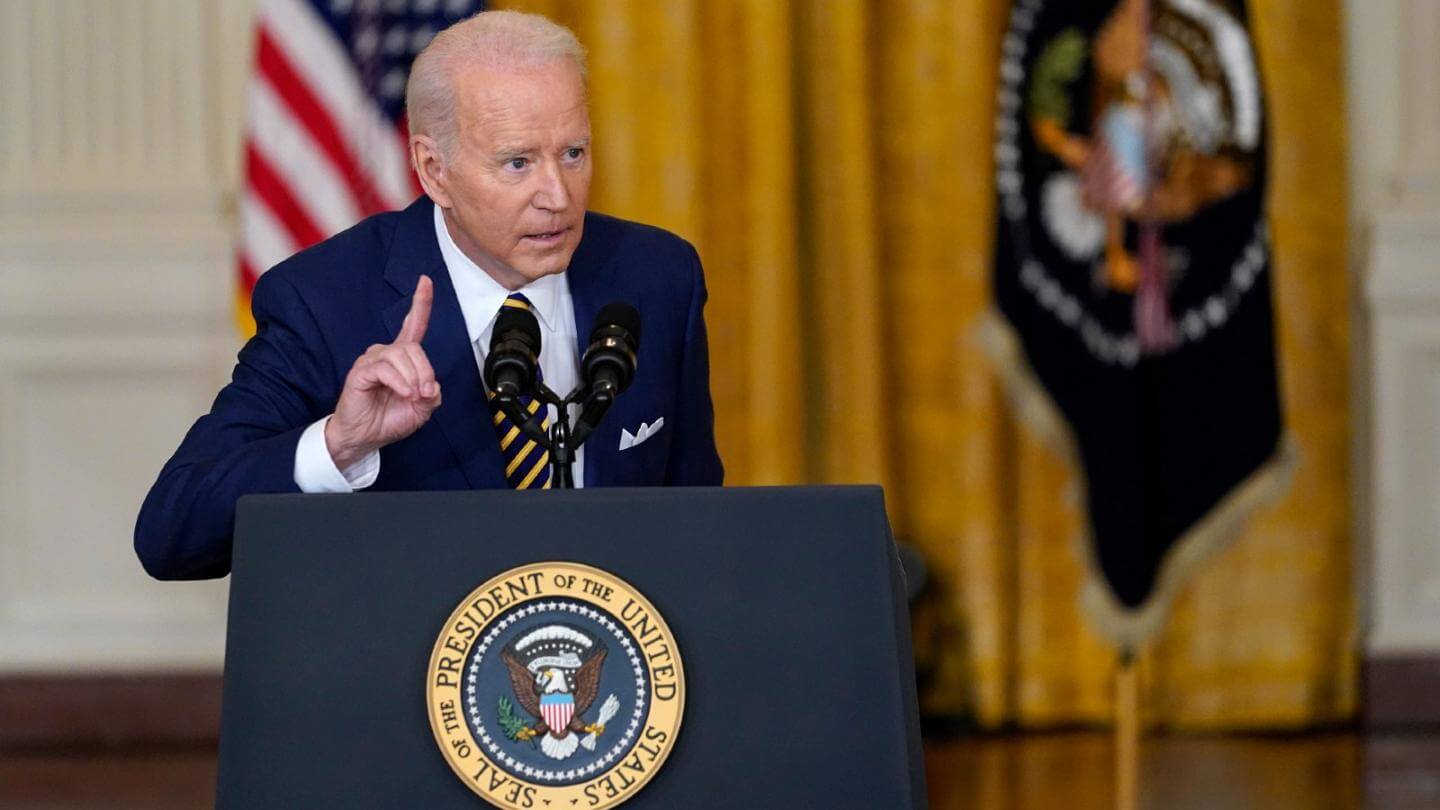The United States (US) on Tuesday announced a ban on oil, liquefied natural gas, and coal from Russia in retaliation to its “unprovoked and illegal ” invasion of Ukraine, sending gasoline prices in the US soaring past the $4 mark for the first time since 2008.
We are enforcing an enormous package of economic sanctions that has caused the Russian economy to crater.
— President Biden (@POTUS) March 8, 2022
The Russian ruble is down almost 50 percent since Putin announced his war.
It is now worth less than one American penny.
US President Joe Biden told reporters that the move, backed by both Republicans and Democrats, targets the “main artery of Russia’s economy,” and aims to thwart Russian President Vladimir Putin’s “war machine.” Biden stressed that his administration will not subsidise Putin’s war and made clear that Russian oil will not be accepted at US ports, adding that the US and its European Allies, some of whom have followed in Washington’s footsteps, are looking for global energy alternatives.
Quinnipiac poll:
— Kyle Griffin (@kylegriffin1) March 8, 2022
Americans say 71-22% that they would support a ban on Russian oil — even if it meant higher gasoline prices in the United States.
However, Biden warned the American public of an evident increase in gas prices by saying, “Defending freedom is going to cost.” When asked if he can do anything about the surging gas prices, Biden replied, “Can’t do much right now. Russia is responsible.”
JUST IN - Average gas prices in the U.S. reached $4.17 per gallon today, the highest in history, breaking the previous record of $4.11 set in July 2008. pic.twitter.com/rRvpbGBfT1
— Disclose.tv (@disclosetv) March 8, 2022
A senior White House official explained that the ban applies to any new energy purchases from Russia and calls for a reduction on existing contracted deliveries. The official emphasised that the ban also prohibits Americans from investing in Russian or Russia-backed energy projects. The official added that Washington has asked the International Energy Agency (IEA) to release an additional 60 million barrels of oil from the Strategic Petroleum Reserves to offset the repercussions of isolating Russia from the energy market.
Russian oil will no longer be accepted at U.S. ports — and the American people will deal another powerful blow against Putin’s war machine. pic.twitter.com/dk7QNXnDA6
— President Biden (@POTUS) March 9, 2022
Following in the US’ footsteps, the United Kingdom (UK) on Tuesday announced that it will gradually reduce the import of Russian oil and oil products by the end of 2022. The UK also confirmed that it is deliberating on a complete ban of Russian gas. Similarly, the European Commission announced plans to cut the European Union’s (EU) energy dependency on Russia by two-thirds this year, and complete isolation of Russian energy supplies before 2030.
The Russian ruble is now Russian rubble. NOSEDIVE.
— Nick Knudsen 🇺🇸🇺🇦 (@NickKnudsenUS) March 8, 2022
Hold some compassion for the Russian people, who did not ask for Putin’s war and are about to go through some very hard times. #DemocracyNotAutocracy pic.twitter.com/YQMx9XXJkF
Earlier this week, Russia threatened to cut natural gas supplies to Germany from the Nord Stream 1 pipeline in response to Western sanctions. Russian Deputy Prime Minister Alexander Novak warned of “catastrophic consequences for the global market,” with the price of one barrel surging to $300 or more if the US and the EU banned Russian imports.
In response to the surging energy prices, the Biden administration has turned to long-time foe Venezuela and allies in the Middle East. Last week, a delegation comprising high-level officials visited Caracas to mend relations with the country in order to tap into their vast oil reserves. Putin has played a great hand in helping Venezuelan state-run oil company PDVSA evade United States (US) sanctions. In this respect. Washington demanded that Venezuelan President Nicolas Maduro provide a portion of its oil supplies in exchange for easing sanctions. Following the meeting, Venezuelan President Nicolás Maduro said he had held “respectful, cordial, [and] very diplomatic” talks but did not offer any more information.
One reason we're paying $4 a gallon for gas is that a Saudi prince is angry that we criticized him for for murdering a Washington Post journalist.
— Tom Malinowski (@Malinowski) March 7, 2022
If the alternative to relying on a Russian tyrant's oil is a Saudi tyrant's oil, maybe we should be less reliant on oil?
On the other hand, Washington’s attempts to reach out to its allies and major oil producers in Saudi Arabia and the United Arab Emirates (UAE), both of which are members of the Organization of the Petroleum Exporting Countries (OPEC), was met with silence. According to the Wall Street Journal, the Saudis are unhappy over Washington’s lack of support for the war in Yemen. Saudi Arabia has also urged the US to provide Saudi Crown Prince Mohammed Bin Salman immunity over his involvement in the murder of Saudi dissident journalist Jamal Khashoggi in 2018.
The UAE and Saudi Arabia are also concerned that getting involved in the conflict, even tangentially, could have a detrimental effect on their own oil exports. In fact, oil prices reached $130 a barrel on Tuesday after Biden’s announcement.

